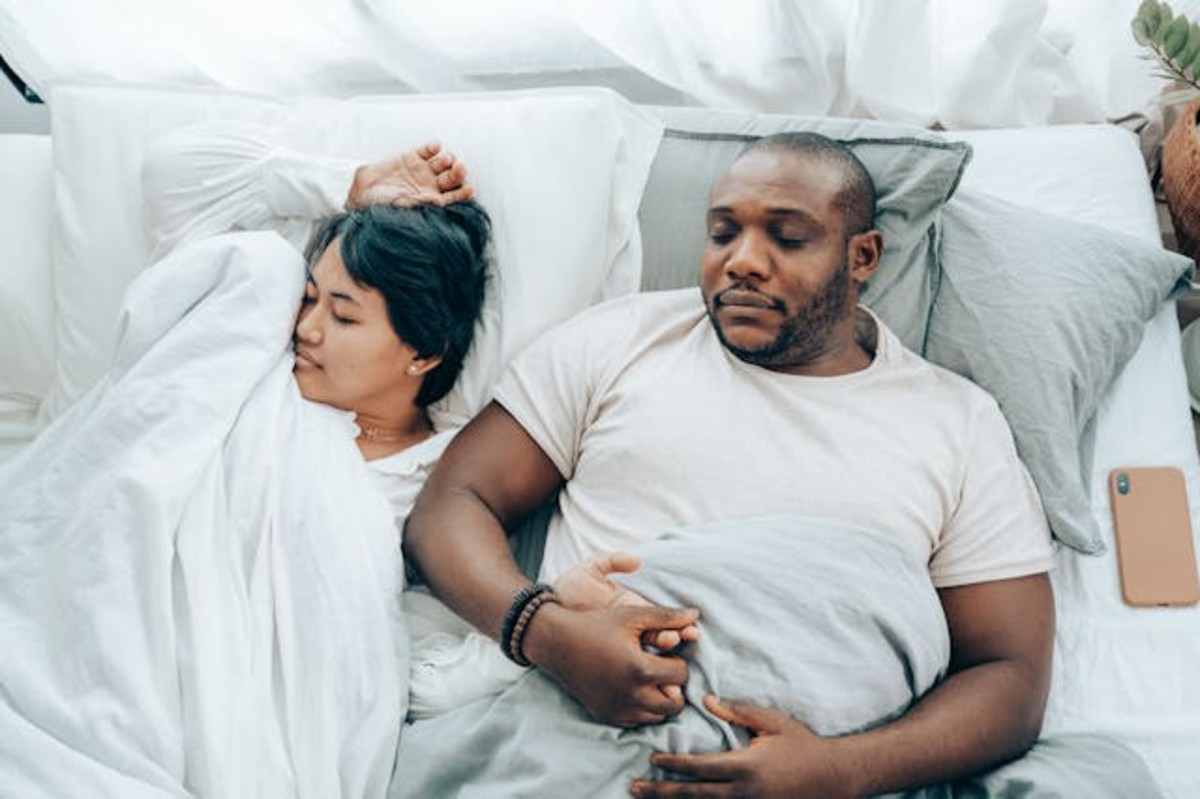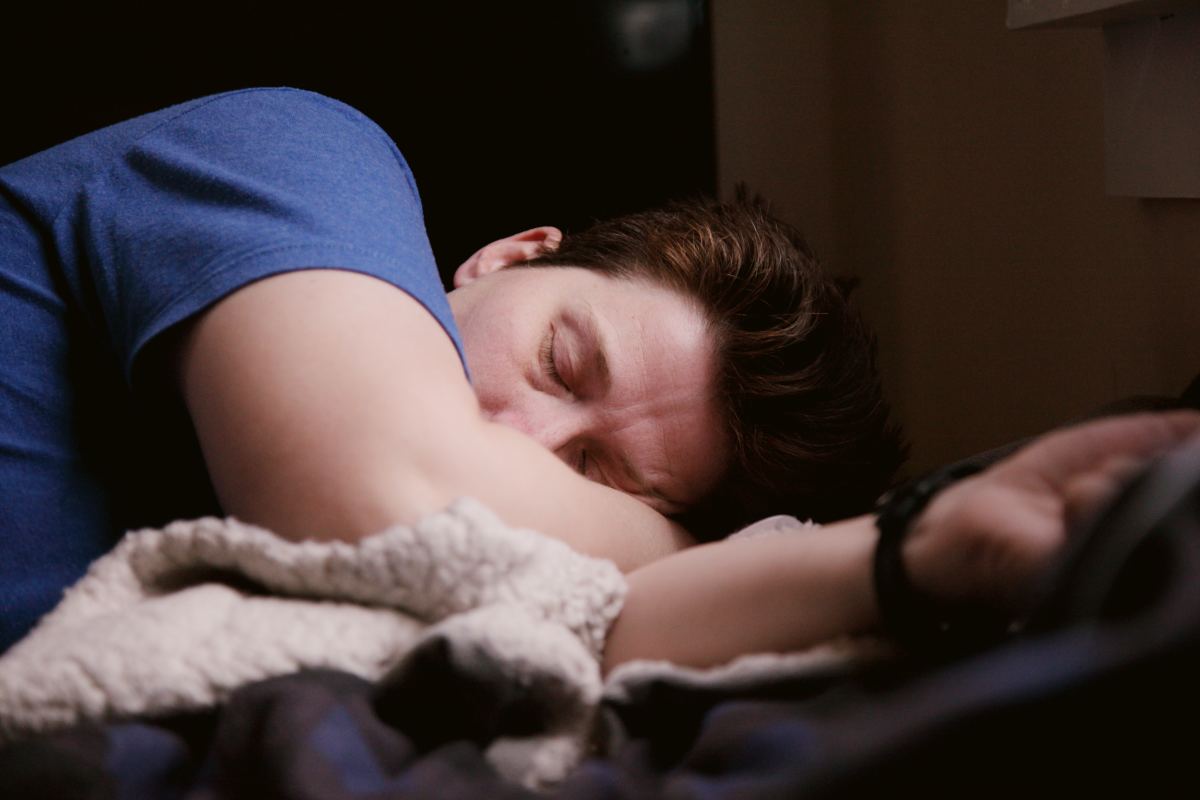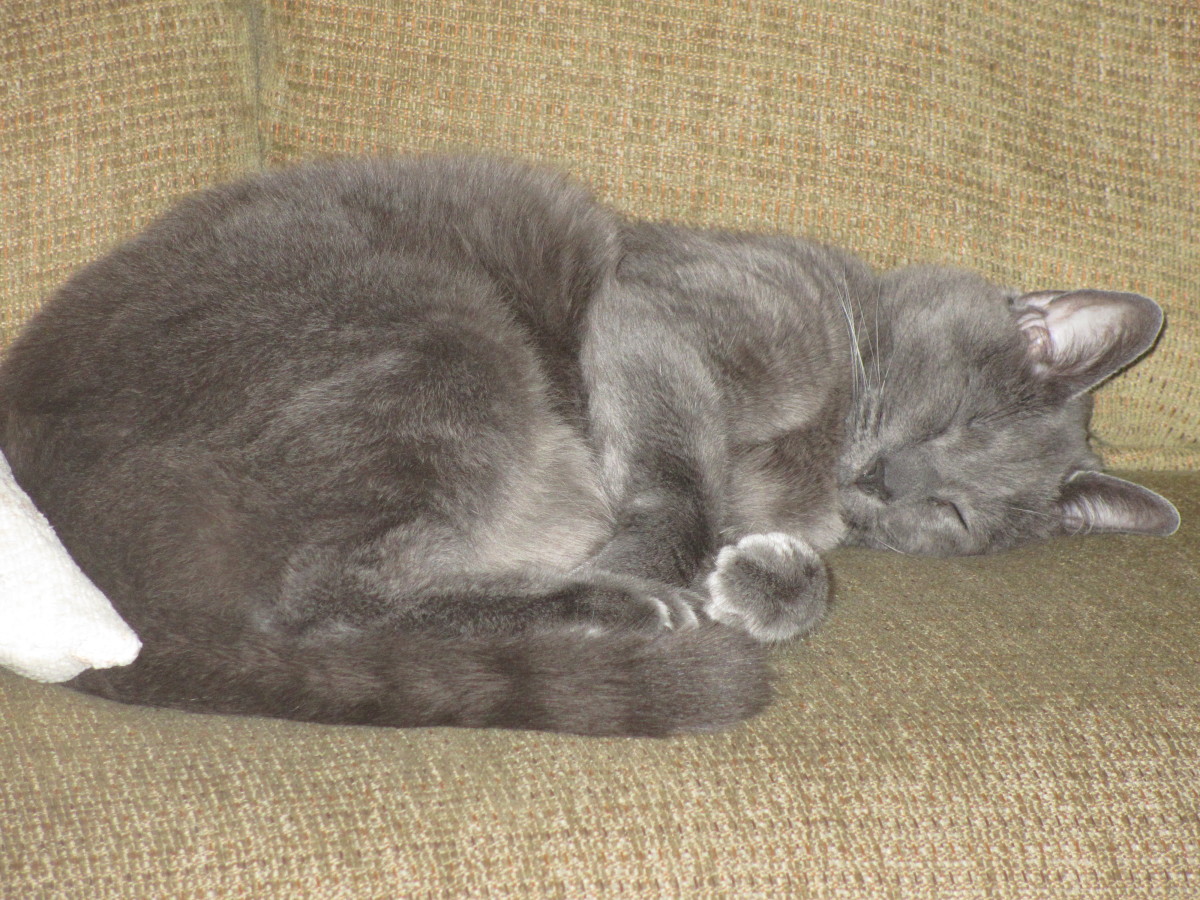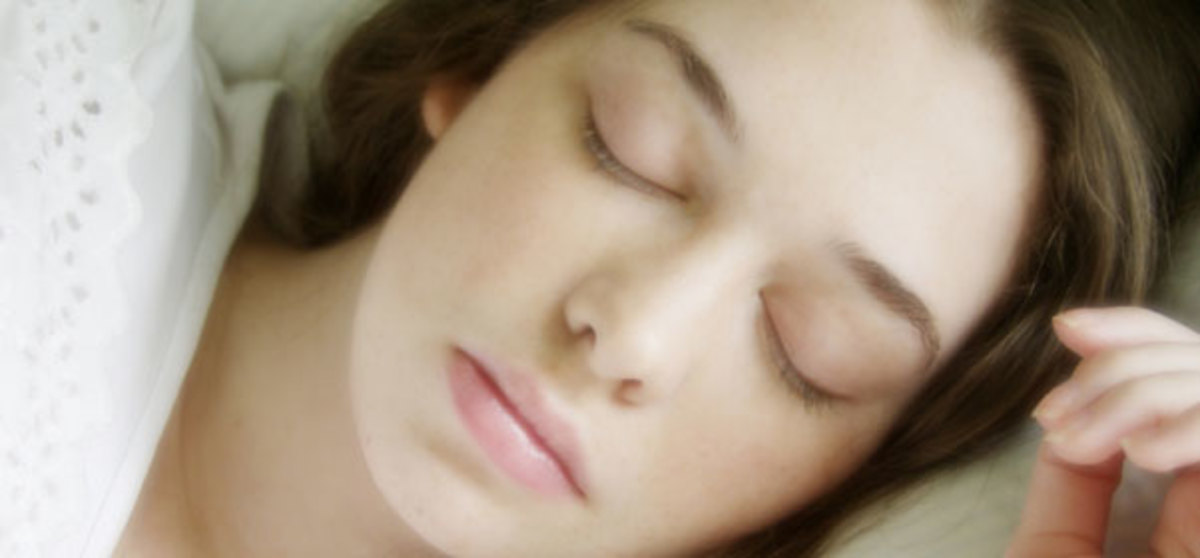How to Get a Good Night's Sleep
Whether you're worrying about something, sensitive to noise, hyped up on caffeine or just lying awake for no good reason, these tips should hopefully give you some ideas.

1. Try giving up caffeine.
Some people claim that caffeine does not affect their sleep, but if you're having problems sleeping, it can't hurt to give it up for a while, just to make sure. It might be a bit difficult to do - caffeine is an addictive drug after all - but you might find that you're much more relaxed and receptive to sleep as a result.
If you don't want to give it up completely then try limiting your caffeine consumption to before 3:00 in the afternoon.
2. Your bed is for sleeping and loving.
Often people don't sleep because they have things on their minds. They literally take work issues or family problems to bed with them!
If this sounds like you, then you have to be strong with yourself. Ban these worries from your mind. Make a rule that your bed is for sleeping, relaxing and making love. Nothing else.
3. Exercise more.
Exercise helps to reduce stress and promote sleep. Try not to exercise too close to bed-time, as this may leave you too over-stimulated to sleep. A good rule of thumb is to stop exercising three or four hours before you go to bed.
But one exception to this rule is sex, which seems to be a good, sleep-inducing exercise!
4. Develop a routine.
It's not just babies who like routine. Adult bodies and minds also thrive on having a regular schedule.
Try going to bed and getting up at the same times each day. This will train your body to expect sleep at a certain time. And if you make yourself go to bed at a decent time each night you'll find it easier to get up in the morning. (This sounds obvious, I know, but personally I find it quite difficult to put this one into practice. I am striving to get more routine into my life!)
5. Don't eat at night.
Like with caffeine, eating too soon before bedtime can leave you too stimulated for sleep.
Eating and then lying down soon after is also liable to bring on heartburn, especially in people already susceptible to this condition. Try not to eat within three hours of going to bed.
6. Take up a relaxing hobby.
This will give you a break from thinking about any trials and tribulations in your life, allow your body to experience a state of relaxation and help to reduce your stress levels.
Everybody has a different idea about what is relaxing; some people may benefit from yoga, tai chi or meditation, which are wonderful for calming both body and mind, others may prefer swimming, walking, or creative activities such as knitting, painting or pottery.
7. Ditch the TV.
No, I don't mean give it up completely, (although I have read accounts of how this can greatly improve your quality of life, so maybe it's worth considering?)
I mean remove the TV from your bedroom. Television is too much of a stimulent. And watching late at night is likely to make it more difficult to fall asleep, and it might also cause your sleep to be disturbed.
Reading is a much more relaxing activity, and many people find that it helps them to get to sleep.
8a. Do some relaxation exercises.
This is my personal favourite tip, and over the years has helped me a great deal on those nights when my body's tired out but my mind just wants to party!
My favourite is sometimes called deep muscle relaxation. This is where you progressively relax each part of your body by focusing your attention on it. For example, say to yourself "be conscious of your toes", and then try to feel how your toes feel. You might experience some tingling, or feel the muscles around your toes softening. Do this for every part in between your toes and your head, and after a bit of practice you should feel some good effects!
8b. Do tai chi in your head!
If you practice tai chi or yoga, you might find that running a tai chi form or a yoga sequence in your head is almost as relaxing as actually doing it! And I'm sure that meditation techniques would work just as well to calm the mind in preparation for sleep.
9a. Invest in some earplugs..
Many people find it difficult to sleep because of noise. Perhaps it's noisy neighbours or your partner's (or your own) snoring that is keeping you awake.
If so, you might find that earplugs are a simple solution. You can buy foam or wax earplugs, which I find equally effective.
Milky drinks help some people to fall asleep.
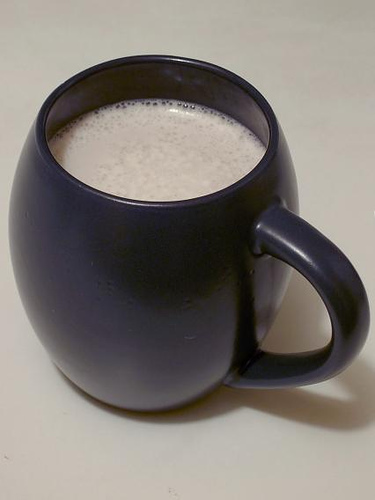
Others find herbal teas more effective.
9b. ..or anti-snoring aids.
If it's snoring that's the problem, the person who snores could try wearing nose-strips, which help to widen the nostrils, or try out one of the sprays which reduce snoring by lubricating tissues at the back of your throat.
10. Drink a sleep-inducing drink.
Lots of people drink hot, malty drinks before going to sleep. Some might find them effective because they are comforting, and when you are comforted it helps you to relax. However, they may actually be stopping you from getting to sleep. If your drink contains chocolate, then it also has caffeine which is a stimulant. And drinks containing sugar can cause a rush of energy which makes sleep difficult. If you want a milky drink you might be better off sticking with warm milk.
Although some people like a night-cap before going to bed, alcohol stimulates the nervous system and so is not recommended for a peaceful night.
Tea and coffee are obvious no-no's because of the caffeine content, but some herbal teas are very useful for promoting sleep. Teas containing chamomile or valerian are particularly good, as these are both natural sedatives. There are many special bedtime teas in health food shops and supermarkets which contain all sorts of natural ingredients to calm you to sleep.
But if you're used to a nice cup of tea before going to bed, you might like to try substituting it with red bush tea (or rooibos), which has a similar flavour to black tea but doesn't have the caffeine. It is recommended for insomnia and is known to be have many other helpful properties.
11. Pretend you're already asleep!
This might sound like a strange one. But sometimes it's actually the worry of not sleeping that keeps us awake; and it turns into a sort of vicious no-sleep cycle. When we can't get to sleep we start having thoughts like "I'm never going to get to sleep", or "only 3 hours until I've got to get up, got to get to sleep now!" And this causes us further stress making sleep even less attainable. We need to break the cycle by turning off this worry. It's difficult to do, but the most effective way for me was (and still is) something that I learnt a long time ago.
When I was little and I had problems getting to sleep, my very wise dad used to tell me "You're already asleep, you're just dreaming that you're awake..". It was a strangely comforting thought. And although I knew that I wasn't really asleep it helped me to pretend that I was, and I usually fell asleep for real very soon afterwards!
More on sleep
- BBC Radio 4 - Home Truths- Can't Sleep?
How one family overcame insomnia. - Will eating before sleeping affect your sleep? An experiment.
Doctors test this theory, using some students and some curry...



